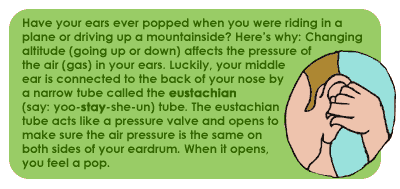 Patient (obviously lethargic, as he is slouched back on the exam table like drained spaghetti)
Patient (obviously lethargic, as he is slouched back on the exam table like drained spaghetti):
"So, I've got less than two months left in my current position before I move to another town and go back to school. The office seems more like a place to hang out during the day than an actual job. But there are still things that need to be done and I just can't bring myself to care. What's happening to me, doc?"
Doctor (leaning back in his swivel chair with arms behind head and chewing absently on a pencil): "Hnnhh ... ? Oh, yes, your apathy problem. Frankly, I don't see what it has to do with me."
Patient (lazily raising one eyebrow): "You're my doctor, aren't you? Shouldn't you care about my well-being?"
Doctor: "Well, I'm transferring to Hawaii later this month, and to be honest, I've kinda checked out."
Patient: "Dude, I hear you. I can barely bring myself to drive to work in the mornings. And after lunch, I usually just sit and count the numerous ways that I don't care anymore."
Doctor (now gazing out of the window at a passing squirrel): "Wha ... ? How's that?"
Patient: "Nevermind. I'm just gonna chill out here for a while and take a nap."
Doctor (nodding off in his chair): "That's normal. I'll have the nurse get you some anti-depressants ... zzzzzzzzzZZZ."
 Don't let this happen to YOU!
Don't let this happen to YOU!is a term used to describe the laziness displayed by students nearing the end of high school and college in the United States and Canada. Its symptoms can include slowness, procrastination, apathy regarding schoolwork, and a tendency toward truancy.
Background"Senioritis" is a jocular term rather than a medical one. It is not recognized by the American Psychological Association as a distinct illness, but may generally be considered as a combination of attention-deficit disorder and amotivational syndrome. It could also be considered allied to affective psychological disorders, such as depression or anxiety.
Senioritis does not affect all people in the same way. While some show apathy, others show mania. In this way, the syndrome can prevent students from performing routine tasks because of the heightened stress associated with preparing for graduation. When taking excessive course loads to fulfill scholastic requirements, many seniors show an inability to find work, control emotional swings, consummate relationships, maintain personal hygiene, etc. Unsuprisingly, seniors who find the twin pressures of soul-crushing stress and mind-numbing apathy too much to handle often turn to alternate, usually illicit methods of relieving the emptiness that fills them. These pursuits include the classic "sex, drugs, rock n' roll".
While senioritis is generally viewed as an imaginary disease, its effects are well known to most experienced educators. This imagined affliction is a symptom of students' complacency once they have all but guaranteed their place in college. After college admission letters arrive in early spring, high school seniors feel even less pressure to push themselves academically. In an effort to combat senioritis, many colleges require that an updated transcript be sent from the high school after the end of the school year, and will revoke admission if a student's grades drop. The attitude of many students is that they "deserve a break", and may well have other commitments outside school, but the effect is blamed on the amount of remedial study needed when starting college. Another theory voiced by students blames senioritis on the decreasingly stable job market, i.e. "Who wants to work if I know I'll be flipping burgers anyway?". Alternately, the prevalence of corporations as the dominant social entity can cause some seniors to do a cost/benefit analysis that leaves them questioning whether their contribution will enhance them as an individual, or simply be lost amid the hustle and bustle of modern life under a globalized economy.
PreventionGeneral preventative measures, frequently taken by school administrators, can include research papers, senior projects, and other academic assignments of significant weight. Some schools even try to offer students programs to encourage attendance, while other schools buckle down and enforce their rules regarding attendance. Medical orthodoxy suggests that the dangers of preventative medication generally outweigh the benefits and thus, the majority of doctors do not prescribe drugs to "treat" senioritis. Common contemporary opinion regarding the disease is also illustrated in slogans such as "Senioritis: We'd fight for a cure, but we're just too damn lazy."
If you suffer from this debilitating disorder, you are not alone. Operators are probably standing by (unless they're on break) to speak with you about how to seek help.
CALL OUR TOLL-FREE NUMBER
1-800- ... um ... I think it has a 4 in it ... oh, forget it.




 Some of you may have already heard about this unusual little project, but I thought I would bring it to the attention of the four people who read this blog.
Some of you may have already heard about this unusual little project, but I thought I would bring it to the attention of the four people who read this blog. The eagle has landed ... and he's terminally ill!
The eagle has landed ... and he's terminally ill! Patient (obviously lethargic, as he is slouched back on the exam table like drained spaghetti): "So, I've got less than two months left in my current position before I move to another town and go back to school. The office seems more like a place to hang out during the day than an actual job. But there are still things that need to be done and I just can't bring myself to care. What's happening to me, doc?"
Patient (obviously lethargic, as he is slouched back on the exam table like drained spaghetti): "So, I've got less than two months left in my current position before I move to another town and go back to school. The office seems more like a place to hang out during the day than an actual job. But there are still things that need to be done and I just can't bring myself to care. What's happening to me, doc?" Don't let this happen to YOU!
Don't let this happen to YOU!
 Happy 147th Birthday,
Happy 147th Birthday, 

 The following excerpts are reproduced without alteration from Dan Brown's web site www.danbrown.com.
The following excerpts are reproduced without alteration from Dan Brown's web site www.danbrown.com.










